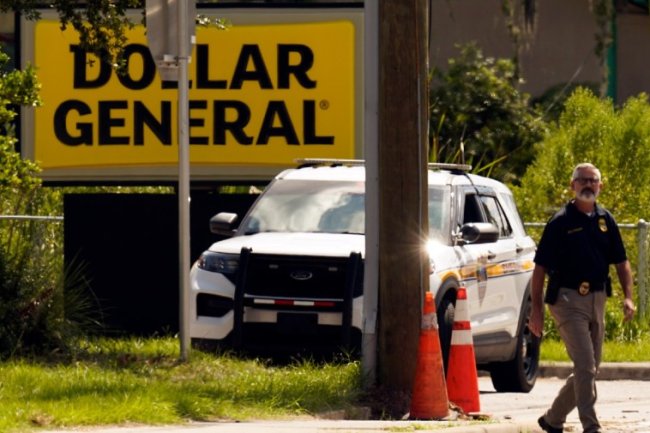Uganda School Massacre Signals Islamic State’s Growing Reach in Africa
By Nicholas Bariyo , Gabriele Steinhauser and Benoit Faucon / Photographs by Badru Katumba for The Wall Street Journal June 19, 2023 2:25 pm ET BWERA, Uganda—For Zephana Kirilhuhandi and Sylvia Biira, the brick buildings of Lhubiriha Secondary School presented a gateway to a future that they and other parents in this impoverished border town never had. Now half of its buildings lie in ruins and 37 of its 63 students—between the ages of 12 and 22—are dead, as are five adult community members. Among them are Elton, the Kirilhuhandis’ studious 17-year-old son, and his father, Zephana, the school’s secur

By
Benoit Faucon / Photographs by Badru Katumba for The Wall Street Journal
BWERA, Uganda—For Zephana Kirilhuhandi and Sylvia Biira, the brick buildings of Lhubiriha Secondary School presented a gateway to a future that they and other parents in this impoverished border town never had.
Now half of its buildings lie in ruins and 37 of its 63 students—between the ages of 12 and 22—are dead, as are five adult community members. Among them are Elton, the Kirilhuhandis’ studious 17-year-old son, and his father, Zephana, the school’s security guard.
Another son, 15-year-old Brian, is missing. Authorities couldn’t determine whether he was among a handful of students kidnapped when Islamic State-linked militants raided the school on Friday night, or if his is one of the charred bodies recovered from one of its dormitories.
“He badly wanted his children to study,” Moses Kirilhuhandi said of his uncle, Zephana, fighting back tears at a hastily arranged funeral on Sunday. “He valued education a lot and he wanted to do everything in his power to make sure his children attain that.”
Elton’s and Brian’s mother, Biira, was too distraught to speak.

People in Uganda held funerals for victims of a terrorist attack at a school that killed 41 people on June 16. A commander said the suspected Islamic State-affiliated fighters initially planned to attack a military installation. Photo: Badru Katumba for The Wall Street Journal
The massacre at Lhubiriha Secondary School, Uganda’s worst terrorist attack in more than a decade, is a grisly marker of how far militants of the Allied Democratic Forces have expanded the territory in which they operate.
Formed in Uganda, the Islamist group now operates from the jungles of the neighboring Democratic Republic of Congo. Since 2019, when Islamic State first recognized the ADF as one of its franchises, the group’s fighters have bombed churches and beheaded villagers in eastern Congo in a terror campaign that has claimed around 4,000 civilian lives, according to estimates by the U.S.-based Bridgeway Foundation, which tracks militant activity in east and central Africa.
Other African Islamic State affiliates have helped fund the group, including one in Somalia, and it benefits from operational links to Islamist fighters in Mozambique, according to a report published by Bridgeway earlier this month.
That support has helped make the ADF one of Islamic State’s most active and lethal franchises worldwide following the collapse of the Islamic State caliphate in Syria and Iraq. U.N. experts estimate that the group now has some 2,000 fighters in eastern Congo, thanks in part to forced recruitment through jailbreaks and the kidnapping of children during its raids.
Now the militants’ growing capabilities allow them to strike civilian targets more frequently in Uganda, which, like Congo, is a majority-Christian country.

The portraits of Zephana Kirilhuhandi and his son Elton—who were killed in the school attack—are displayed at a burial ceremony in Mpondwe, Uganda.
Photo: Badru Katumba for The Wall Street Journal

A woman consoled another mourner at the funeral.
Photo: Badru Katumba for The Wall Street Journal
In November 2021, two ADF recruits detonated suicide vests in central Kampala, the Ugandan capital, killing six people and injuring dozens. Islamic State quickly claimed the attack and has used accounts and images of the ADF’s strikes in Uganda in its promotional materials, calling on African Muslims to join its jihadist fight.
The ruins of the Lhubiriha Secondary School speak to the group’s growing threat.
Built around a decade ago by a small Canadian volunteer group, the school sits less than 2 miles from Uganda’s porous border with Congo. With its high brick walls and black metal gate, the school was a haven of safety compared with the lawlessness of eastern Congo, where dozens of rebel groups have fought over the region’s rich mineral resources since the early 1990s.
Students mostly came from Bwera, a bustling market town, and nearby villages, drawn by fees that were about one-fourth of those charged by government institutions. Many spent weeknights sleeping in the school’s dormitories.
That calm ended shortly before midnight Friday, when a gang of between five and 10 suspected ADF militants, armed with guns, knives and machetes, found their way to the school along a narrow footpath.
Ugandan officials say the fighters had crossed over from Congo two days earlier and initially planned to strike a military installation. They are now investigating what led the militants to change their target and why nobody stepped in to stop them.
Zephana Kirilhuhandi, hired last month as the school’s security guard, was the fighters’ first victim, killed with a bullet through the head, Ugandan officials said.
Alarmed by the gunshots, dozens of boys locked the door of their dormitory, but the men shot through the windows and lunged petrol bombs inside, setting ablaze mattresses and other flammable belongings. As the boys’ dormitory burned, killing at least 17 of them, the fighters chased after a group of girls trying to flee, the officials said.
The men hacked to death 17-year-old Amina Biira, who played on the school’s netball team, three cousins—Marion Ithungu, 22, Junior Mbambu, 20, and Gaudesio Biira—and 16 of their classmates. Mbambu, in her final year of school, dreamed of studying to become a lawyer, according to her mother, Augustine Byahali.
Amina’s uncle, Ronald Birungi, a customs agent who lives around 300 yards from the school, said he and his neighbors tried to call the police and other local authorities, but no one responded until the following day.
“I called almost every telephone number of police officers I know, but they did nothing,” said Birungi. “The police and army just left our children to die.”
A spokesman for the Ugandan military said that while there are many troops in the area, they couldn’t be expected to “cover every inch of the Congo’s border with Uganda.”
From the school, the militants proceeded to nearby houses. They tried to break down the door of a pharmacy owned by Rapharida Massale. Through a small hole in her steel door, Massale said she could see the gunmen and their AK-47s. With them were six students kidnapped from the school and forced to carry food and other looted items.
Massale watched the men recite Islamic prayers before they broke into the shop next door, killing its owner, 37-year-old Mbarimba Wapalya. His wife and three children survived by escaping through a rear door.
The fighters killed two more people—70-year-old Zakayo Masereka and his 95-year-old mother, Florence Masika—before escaping back into the jungle, taking with them the kidnapped students and 15 other community members, including several more children, according to a local government official.
Newsletter Sign-Up
What’s News
Catch up on the headlines, understand the news and make better decisions, free in your inbox every day.
Subscribe NowThe ADF emerged from a 1990s rebellion by Muslims in Uganda who felt persecuted by the regime of President Yoweri Museveni. Beaten across the border into eastern Congo by the Ugandan military, the group, sometimes banding together with other local militias, carried out mostly low-level attacks throughout the early 2000s. In 2015, the group’s founder, Jamil Mukulu, was arrested in Tanzania.
It was Mukulu’s successor, a baby-faced commander named Musa Baluku, who first pursued the links with Islamic State that soon helped reverse the group’s fortunes, according to communications obtained by Bridgeway in 2019.
In its report, Bridgeway described how it had tracked $130,000 sent by Islamic State in Somalia and routed via middlemen in South Africa and Kenya that helped fund bomb attacks in Kampala in October 2021.
Despite a joint campaign launched against the ADF by the Ugandan and Congolese militaries following the 2021 Kampala attacks, the group has grown its operations and capabilities over the past year.
In 2022, the ADF killed more than 370 civilians in Congo and expanded its operations to an area roughly the size of Rhode Island. Citing security and intelligence sources, as well as ADF collaborators, the U.N. experts said in a December report that the group plotted an attack against a summit of Commonwealth leaders in Rwanda last year, but abandoned the plan after the arrest or disappearance of some of its allies.
This January, ADF militants planted an improvised bomb at an outdoor baptism service at a Pentecostal church in Kasindi, Bwera’s neighboring city just across the border in Congo. The explosion killed 16 attendees and wounded at least 62, many of whom lost limbs in the attack.
Weeks later, the U.S. placed a $5 million bounty on Baluku’s head through its Rewards for Justice Program.
Back in Bwera this weekend, residents said they had thought the heavy presence of Ugandan soldiers carrying out operations against the ADF in Congo would keep them safe from the group’s assaults.
“With all this security apparatus, who expected this kind of attack?” said Moses Kule, a 42-year-old grain trader, pointing in the direction of the torched buildings of the school. “It’s now clear that our hopes have all along been false.”

Mourners attended a funeral for one of the people killed in the attack on the school in Uganda.
Photo: Badru Katumba for The Wall Street Journal
Write to Nicholas Bariyo at [email protected], Gabriele Steinhauser at [email protected] and Benoit Faucon at [email protected]
What's Your Reaction?

















